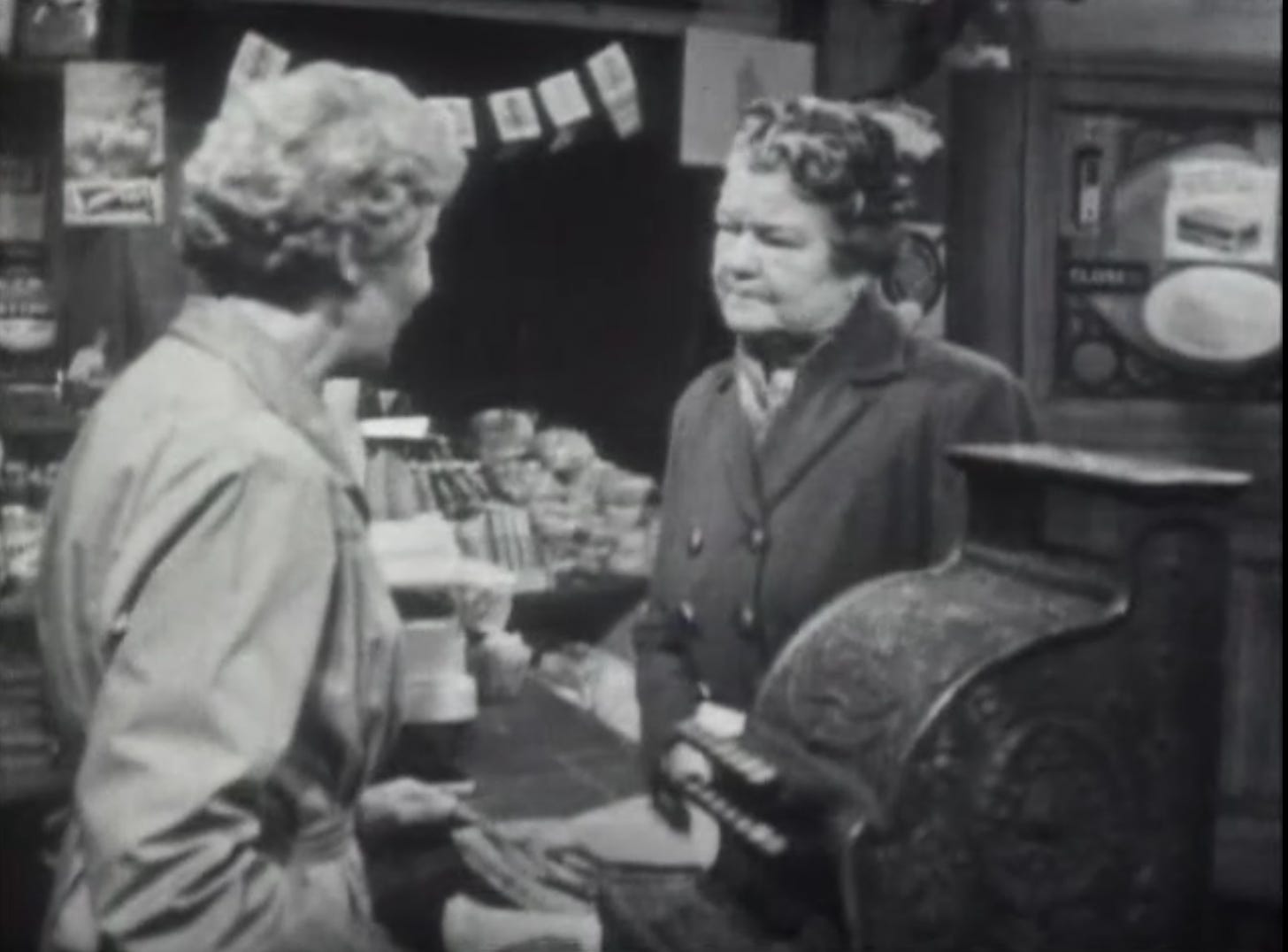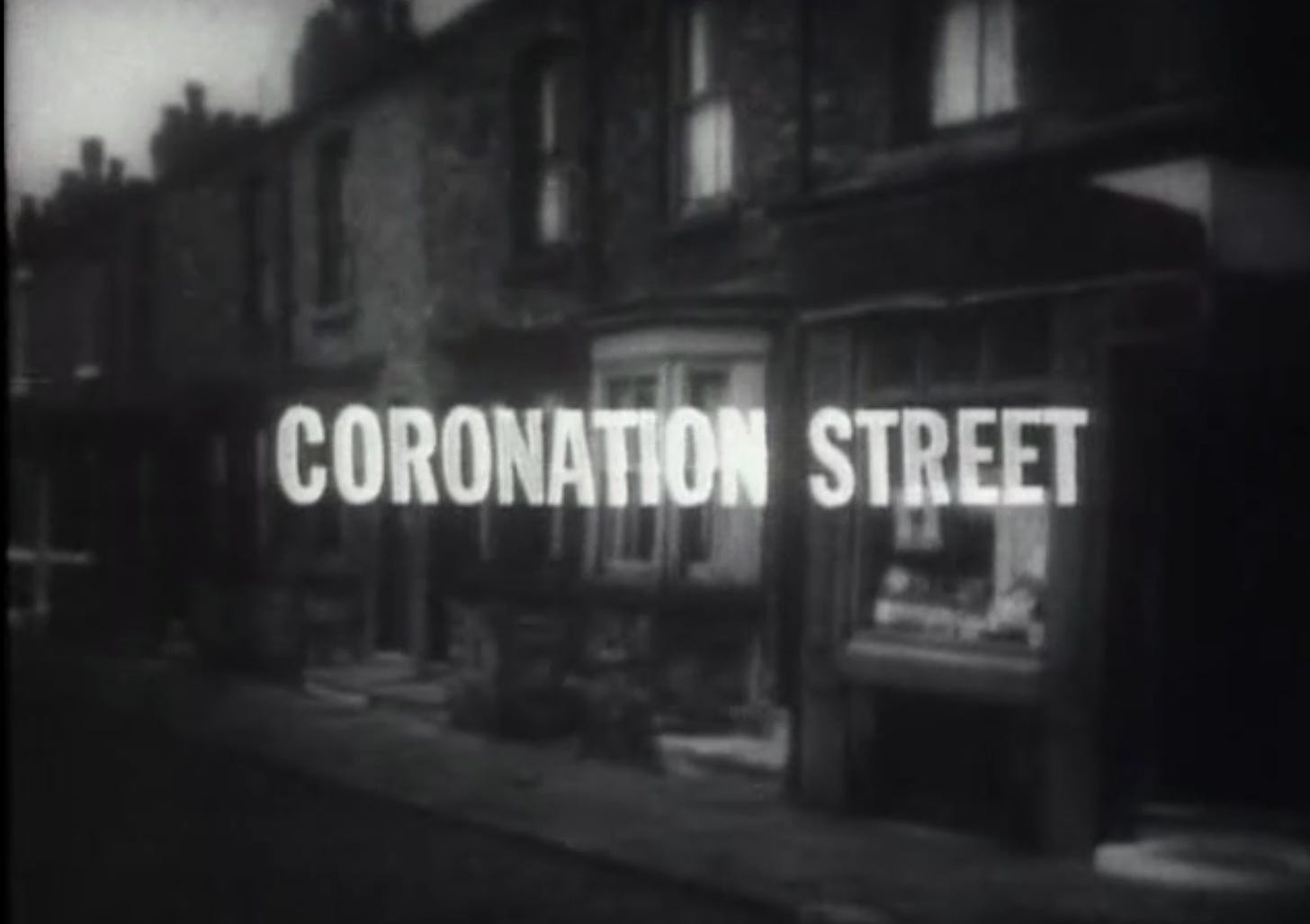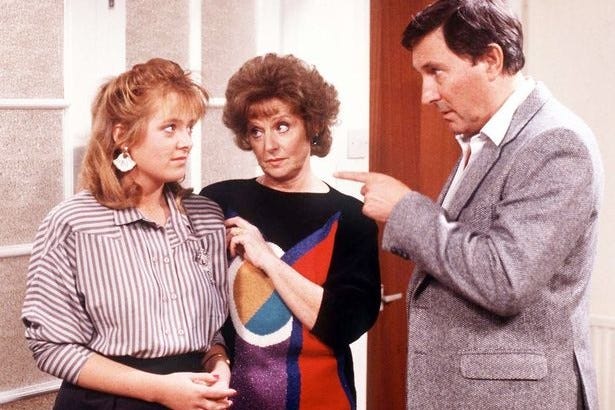Dear Millers, our penultimate weekend read of 2020 is about Coronation Street, which is celebrating its 60th birthday this month. The show was a huge gamble by ITV in the early Sixties — one that few people expected to pay off. David Barnett has written a lovely piece about growing up with Corrie and the part it played in his family and professional life.
And since we have had so many new signups this week, here are a few of the great weekend reads from our archives that you can enjoy as well:
From Maryland to Manchester: the extraordinary story of James Watkins, fugitive slave
The inside story of how students took on the University of Manchester - and won
By David Barnett
The first episode of Coronation Street was broadcast on December 9th, 1960, at 7pm. Watching it back now there’s something of Constructivist Russian cinema about it — those smog-filled streets and a lingering, silent shot of a dartboard in the Rovers Return pub, the babushka-esque Ena Sharples demanding the moral curriculum vitae of the corner shop’s new owner Florrie Lindley.
Early Coronation Street was a Morrissey wet-dream, the kitchen-sink drama lovechild of Shelagh Delaney’s A Taste of Honey and John Osborne’s Look Back In Anger. It was raw, unflinching and, yes, a little dour. It wasn’t expected to last.
The Daily Mirror’s TV critic Ken Irwin gave it three weeks. Granada Television wasn’t much more confident, commissioning 13 episodes — a little over six weeks’ worth. At a time when TV announcers spoke in plummy received pronunciation, the country was suddenly subjected to the working class patois of Manchester, where you could feel nowt (nothing) or feel nowt (angry), where chuck was a term of endearment or a way of ending a relationship, where “Ey up” meant hello, or was an indication of the altitude of something.
It was all about context, as with its creator Tony Warren. Born and brought up in Eccles, he spent a lot of time at his grandmother’s house, on a street that would form the basis for the famous cobbles. Knowing he was gay from childhood, Warren was brought up in a matriarchal family and eschewed the Angry Young Man aesthetic of Osborne, John Braine and Alan Sillitoe for a cast led by strong women characters — the aforementioned Ena and Florrie, pub landlord Annie Walker, gentle Minnie Caldwell, and femme fatale Elsie Tanner.
By the time I was born, Corrie had entered into the final year of its first decade. Any doubts about its longevity had been long since buried; despite what the critics said and the ITV execs thought, Corrie was a huge success with viewers almost from the off.
I don’t remember a time without Coronation Street. It was on without fail in our house in Wigan, every episode. By the end of 1969, the show had started to be broadcast in colour, but we still had a black and white TV well into my primary school years. Why did we love it so much? Because, says my mum, everybody did.
Muriel Barnett, then Muriel Martin, was 14 when the first episode was transmitted. She doesn’t remember there being much publicity about it beforehand, and what there was seemed to be dismissive. “A show set in Manchester? Nobody thought it would take off,” she says. “But from the first episode everybody seemed to love it. Your nan [my mum’s mum, Alice] was rapt. I was still at school so I wasn’t watching it faithfully every time — I was a teenager, I had better things to do. But a few years later I really got into it.”
Her cousin Brenda had emigrated to Australia and because they were so far behind on episodes of Coronation Street she would periodically risk an expensive phone call to my mum to find out what she had to look forward to happening on the cobbles.
Though it had proved so popular, within a few years there were some grumblings that Coronation Street was stuck in that particular end of the 1950s, and efforts were made to update it and bring in younger cast members. And that set the ball rolling for what would be the USP of British soaps: that they weren’t period pieces, they grew with the audience, moved with the times, and embraced social issues.
Living in Greater Manchester while Corrie was at its height was like a watered-down version of living near Hollywood in the 1940s, I say with my tongue in my cheek only a little. You would see the stars out and about; I used to review shows at the Palace and the Opera House theatres in Manchester for the Wigan Evening Post and there would always be a clutch of Corrie actors in the audience.
I saw Jack and Vera Duckworth and Steve and Andy MacDonald open village fetes. While working at the Chorley Guardian I had to phone Ken Morley — a local resident — at 8am one day because he’d crashed his classic car on the M61. He was unhurt and answered my questions but ended up a little peeved. “Can you please stop calling me Reg?” he said a little testily, making me realise I’d been conflating him with his on-screen persona of bumbling supermarket boss Reg Holdsworth throughout the interview.
Coronation Street was wrapped up with my life, and my life with it. When my mum worked in the wages department at a Wigan electrical company called Plessey one of her colleagues was a man called Rodney Litchfield, then an aspiring actor who began his TV career in the 1980s on shows such as A Touch of Frost, Cracker and Heartbeat.
When my children were very small they used to go and stay at their gran and grandad’s in Wigan, and on one visit they chanced upon Rodney sitting on a bench in a Wigan park. It had been decades since my mum had seen him, but he recognised her straight away (“It’s Muriel, who taught everyone to swear!”). He informed her with great pride that he was about to start work on Coronation Street, beginning a 10-month stint as Wilf Morton.
It was a dream come true, an ambition realised. And it was not just for the jobbing actor that Corrie was a target to be aimed for like the bullseye on that tattered dartboard in the opening episode; my Uncle Ronnie was involved with Wigan Little Theatre, and the great Shakespearian and Hollywood actor (and Wiganer) Ian McKellen came to visit. He announced that for all his leading roles in major blockbusters such as The Lord of the Rings and X-Men, what he really wanted was to appear on Coronation Street. Not long after he took the role of smooth-talking literary scammer Mel Hutchwright.
A neighbour of my mum’s, Peggy, once declared she had stopped watching it because “they had a milk bottle on the dinner table, and what will people down south think of us?”. What did people down south make of Corrie? We never cared up here, because on London-centric TV schedules, it was the one bright northern spot that simultaneously reflected our own lives and informed our conversation.
“We used to sit down every night to watch it with our dinners on our knees,” says Nicola Thorp. An actress from Blackpool’s North Shore, she never delighted her family more than when she got the part of Nicola Rubinstein, daughter of the dastardly Pat Phelan, in June 2017. “They were ecstatic. It was a dream come true for them,” she tells me from the houseboat where she lives in London, moving around the capital’s waterways every couple of weeks.
Nicola (no danger of her getting peeved for me confusing her with her Corrie character in this interview) had previously tried out for the role of Kate Connor a couple of years earlier. She didn’t get it (“I messed up the audition”) and it went to Faye Brookes, but the producers came calling for the role of Nicola Rubinstein, and over the next 18 months Nicola was put through the mill, Corrie-style, getting pregnant from a one-night stand, discovering her father was a serial killer, and getting shot.
“Coronation Street was a big part of my life from being young,” says Nicola. “It felt like seeing our own community on the TV. My parents owned a Blackpool rock factory, and even that felt like seeing your own life on TV, with Mike Baldwin’s knicker factory.”
Corrie was always about discussing social issues but through the lens of entertainment. Many soaps that followed did the same thing, but Corrie always had an ace up its sleeve: it leavened the social debate with humour. “I think that’s always been Coronation Street’s strength, tapping into that northern humour,” says Nicola. “It’s how we deal with things, especially in the North West. We make jokes to process the pain, and sometimes people don’t always understand that.”
Over sixty years, Coronation Street has become part of the warp and weft of life in Greater Manchester and Lancashire, woven into the fabric of our region. Maybe future historians millennia hence will use it to unpick the details of our lives today, but then again, maybe not. Because there’s every chance it will still be running.









I grew up with Coronation Street, never really got into it until the 70s but my Mum was an avid fan. It was after I'd got my own home and settled down to married life that The Street became a regular fixture probably for the next 25-30 years. After a certain point and I can't remember exactly when, it started to be on tv for more and more episodes . It became impossible to keep up really and I fell by the wayside. The amount of characters increased it seems and the story lines became more sensationalised.
I remember Corrie for its humour and female led characters the most and it will always have a place in my heart as I grew up on a similar street in the 1950s .
I don't watch any of the soaps now, there's just so much choice of other stuff and I try and have a life off the sofa apart from this year of course!
Thanks for reminding me why I watched it in the first place, I enjoyed reading this piece.